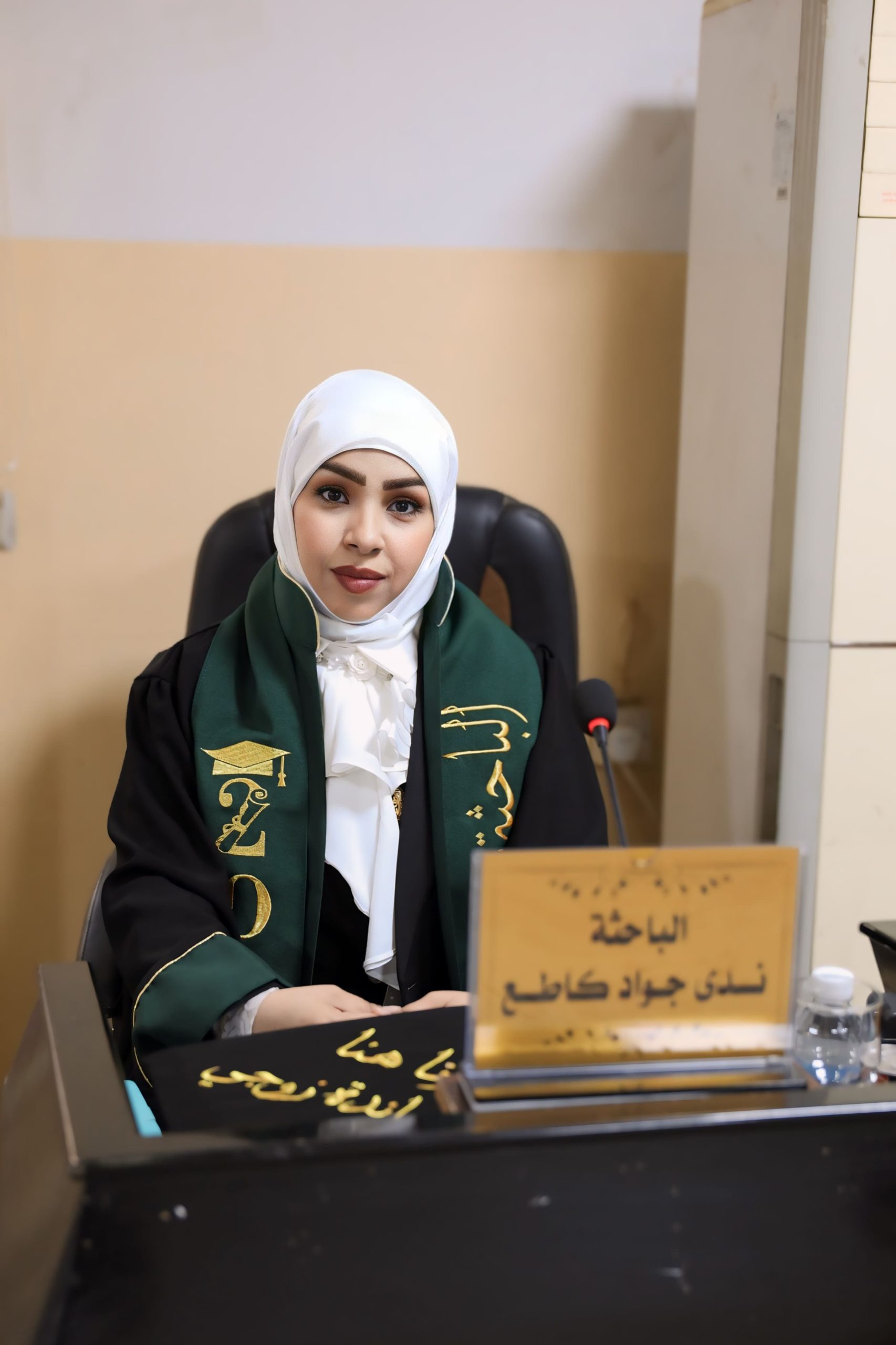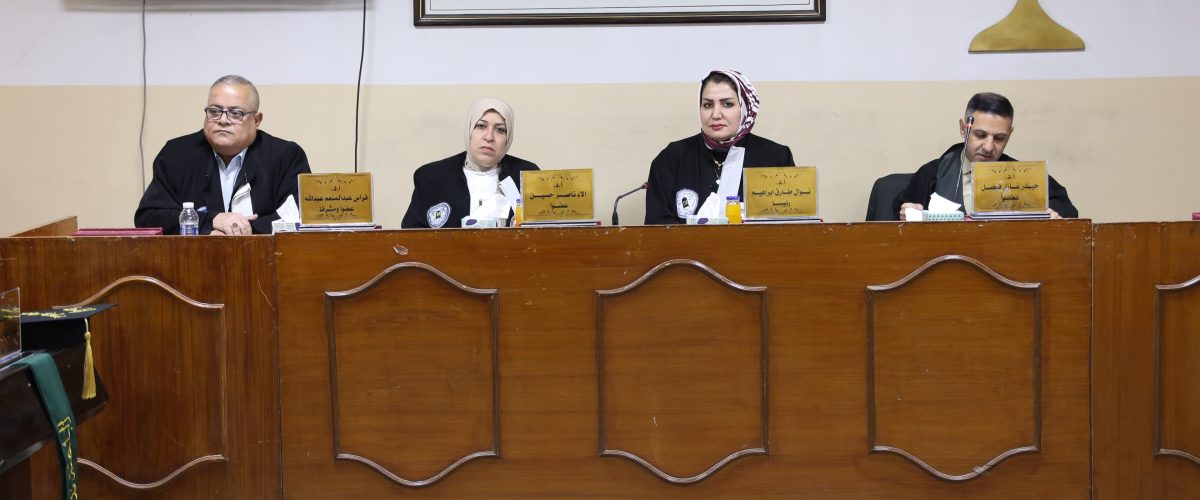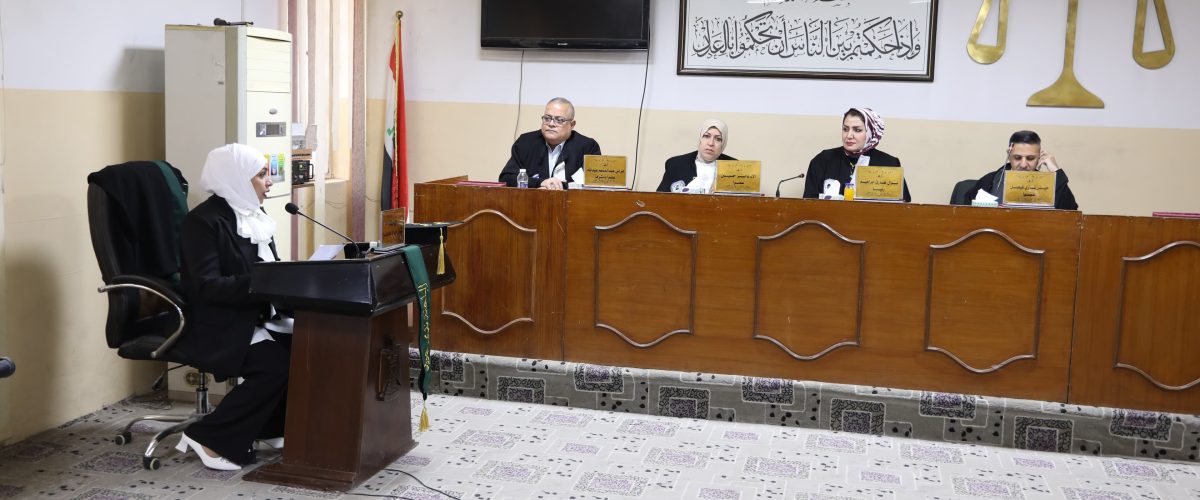The college of law at the University of Baghdad discussed a master’s thesis in the criminal law of the student (Nada Jawad Kata), entitled with (criminal protection of the informant for corruption crimes – an analytical study), on Sunday, 2024/02/10 on the model courtroom at the college.
The thesis aims to explain the importance of the role of the informant in uncovering corruption crimes and the risks to which he is exposed as a result of the services he provides to the competent anti-corruption authorities, as well as the position of the legislator to ensure the actual criminal protection of the informant and to fill the legislative and procedural gaps that hinder the provision of such protection.
The thesis included three chapters, the first of which dealt with the conceptual framework, the second chapter dealt with self-news about corruption crimes, and the third chapter dealt with images of the attack on the informant and the means of protecting him.
The thesis came out with several recommendations, the most important of which is to activate preventive and remedial measures commensurate with the seriousness of this level, whether at the level of committing corruption crimes, facilitating their commission or encouraging them, and to adopt a policy of exemption from punishment for those who tell the competent authorities about a corruption crime they have already participated in.



